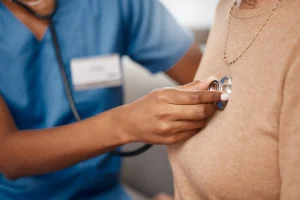What is bone marrow and how does it play a role in our bodies?
Depending on how exotic your tastes are, or if you have dogs who like bones from the butcher, you might know what bone marrow is. It’s the soft centre on the inside of an animal bone that is exposed when the bone has been sawed into pieces.
We have it in some of our bones too, and it’s absolutely essential for our lives. This spongy tissue is responsible for the production of stem cells that then become red blood cells (which carry oxygen to all the parts of the body), white blood cells (which fight off disease and infection), and platelets (which assist with blood clotting and help to form scabs when we injure ourselves). The marrow in our bones helps to produce these various cells, which are all part of our normal life systems.
Sometimes, however, these stem cells begin to malfunction by growing too rapidly or in an abnormal way, which leads to disease. One of the most frequent forms that this disease takes on is leukaemia, which is a type of bone marrow cancer. It usually manifests in the white blood cells, although it may also be present in other types of blood cells. It usually comes in two forms: acute (which develops very rapidly), and chronic (which develops more slowly). When this cancer develops, often what is needed is a bone marrow transplant, which requires a donation.
The South African Bone Marrow Registry
The South African Bone Marrow Registry (SABMR) is responsible for coordinating a list of potential donors for bone marrow. According to the SABMR, leukaemia, which requires a bone marrow transplant for survival, affects hundreds of South Africans every year. In only 30% of cases can a matched donor be found in the patient’s own family, which means that in 70% of cases a donor has to be found elsewhere. The SABMR has a database of 73,000 local donors who are able to provide the life-saving stem cells needed to replenish the body, with access to another 34-million donors worldwide.
As such, the SABMR’s mission and vision is to save lives through the following initiatives:
- Providing information and hope for patients in need of a bone-marrow stem-cell transplant
- Creating awareness among the broader population in order for people to understand the importance of donation and in so doing, to expand the registry of potential donors
- Forging stronger relationships with the community in order to benefit stakeholders, from patients and their families to the doctors and medical practices involved in research and transplants
- Keeping abreast of research into future therapies and embracing technology to this end
Signs of bone marrow cancer (leukaemia)
While you should not assume that the following symptoms automatically mean that you have leukaemia, these are the indications that you could have the disease. Make an appointment with your doctor immediately to have a check-up done, followed by the necessary blood work:
- Weakness or fatigue
- Fever or night sweats
- Shortness of breath
- Bone pain and body aches
- Weight loss
- Enlarged lymph nodes or spleen (you will feel this particularly under your arms or your jaw)
- Regular infections
- Pale complexion
- Frequent and unexplained bruising
- Ongoing bleeding from small wounds
Read more about how to reduce your risk of cancer here.
Testing for bone marrow cancer
Do not be alarmed if these are your symptoms, some of which can also be caused by anaemia. See your doctor immediately and get checked for a proper diagnosis, which will usually involve the following:
- Blood and urine tests
- Bone marrow aspiration (this is when a needle is inserted into the bone to withdraw a marrow sample, and it is done with anaesthetic to eliminate the pain and discomfort of the procedure)
- Imaging tests such as X-Rays, CT scans, MRIs and PET scans to look for abnormal or damaged bones
Treatment for bone marrow cancer
Treatment of this type of cancer depends on many factors, including how far the cancer has progressed, the person’s general state of health, and other individual elements, which will be discussed with you by your doctor.
Treatments include:
- Chemotherapy
- Radiation therapy
- Stem cell transplant
Read more about the various cancer treatments and how they affect your body here.
Outlook for bone marrow cancer patients
While this is a serious disease, survival is possible with the right treatment. It is best to get an early diagnosis is you suspect you may be unwell. Having a positive attitude and making the most of your life will help you to overcome the challenges you may face. Remember, there is always hope, and it is important for you to remain anchored in family and friends if you find out that you are ill.
Read more about how to beat cancer at its own game here.
The lenmed Group is a world-class chain of Private Hospitals that brings quality healthcare to communities across Southern Africa.
For more information please contact:
South African Bone Marrow Registry
Website: www.sabmr.co.za
Donation line: +27 (0) 21 447 8638
IG: @sabonemreg
Disclaimer: Any information contained here is merely a guideline. Always visit your healthcare practitioner for any health-related advice or diagnosis.















